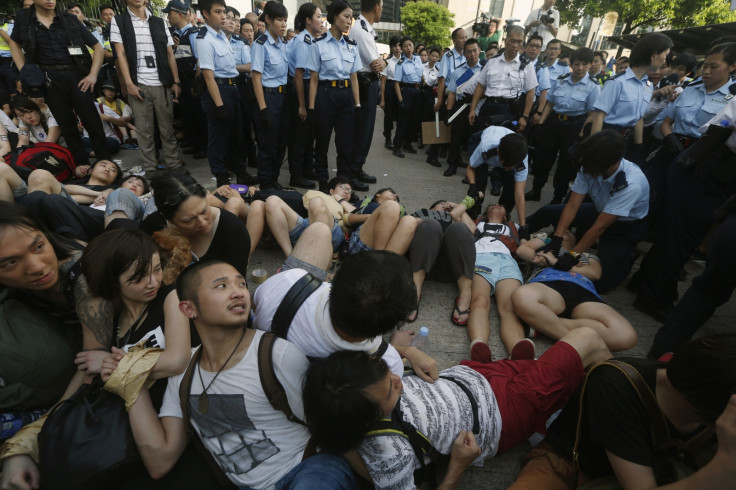Hong Kong Faces Financial District Shutdown Over Political Stand-Off With China

Hong Kong's financial district could be shut down in September after Chinese officials and Hong Kong democrats failed to break a political deadlock over reforms.
The former British colony has witnessed popular protests during the past year over the way its leader is chosen in 2017.
Hong Kong democrats have campaigned for the right to elect a leader by popular vote, while Beijing has insisted the next leader is chosen from a list of pro-Beijing candidates.
A pro-democracy campaign group called Occupy Central has vowed to blockade Hong Kong's Central business district if Beijing does not allow open nominations.
Beijing is expected to limit the candidates to pro-China "patriots" and those who "love China".
Hong Kong lawmakers met with Chinese officials in the city of Shenzhen on 21 August but the two sides failed to reach a compromise ahead of next week's parliamentary meeting in Beijing where officials are expected to reveal Beijing's position on the 2017 elections.
"We will also not allow public nomination of chief executive candidates, occupying central and other related crimes. This remains one of the biggest arguments in Hong Kong today," said Li Fei, chairman of China's Basic Law Committee, after the meeting.
Hong Kong was returned to China from the British in 1997 and has been governed under a different system to the mainland.
Freedom of speech, religion and assembly have been more widely respected on the islands but China has stressed its supremacy is unquestionable.
A shutdown in the beating heart of Hong Kong's financial centre would hurt its economy and global reputation as a stable location for business.
© Copyright IBTimes 2025. All rights reserved.






















